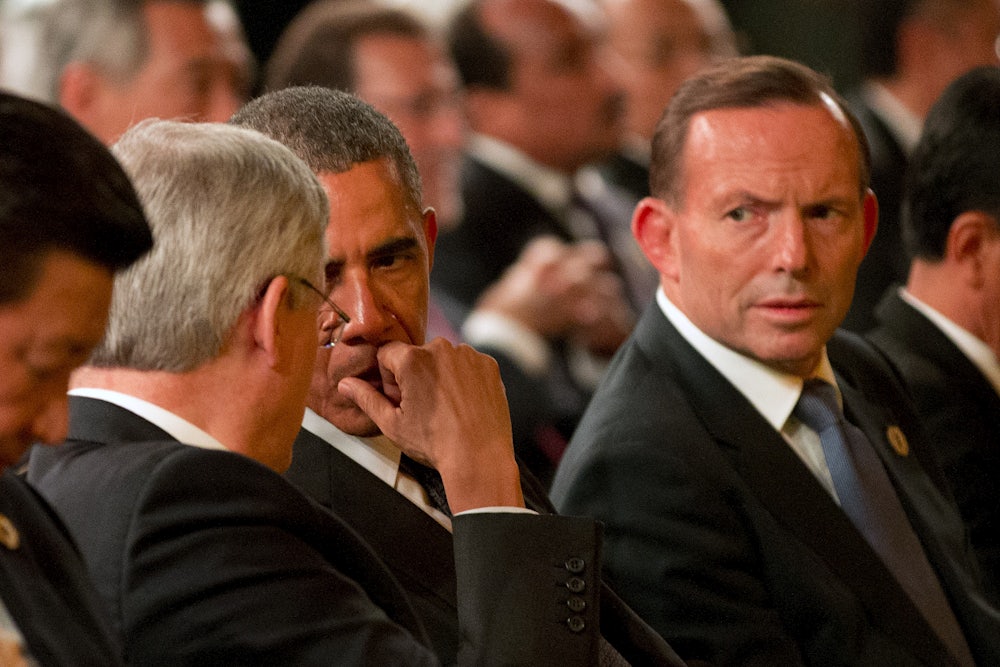The two nations had what was known as the world’s most destructive duo on climate change until a few months ago, when both their respective prime ministers lost their jobs. This fall, Australia’s Tony Abbott—who had called coal “good for humanity” and climate science “absolute crap”—was kicked out of office in a party leadership change, while Canada’s Stephen Harper—a tar sands supporter accused of muzzling scientists—lost an election to the Liberal Party’s Justin Trudeau. Both were reported to be actively working to undercut world progress toward a new climate change accord.
And in no time at all, Australia and Canada’s climate politics began shifting course. Prime Minister Malcolm Turnbull has announced that Australia is committing $1 billion over five years to help developing nations adapt to climate change, above the $200 million the country had already promised in climate finance when Abbott was in charge. (However, Australia wouldn’t commit to a pledge that supported phasing out fossil fuels, despite promising to do so in an earlier agreement.)
Canada, meanwhile, has signaled its ambitions with stronger rhetoric, if not with new climate commitments. “Canada is back, my friends,” Trudeau said bluntly in a speech on Monday. “We’re here to help.”
